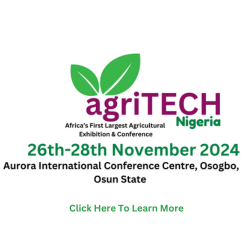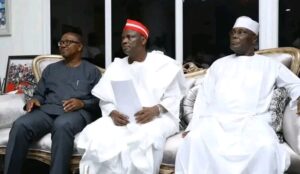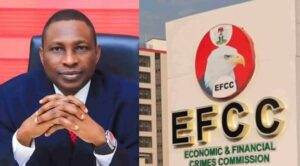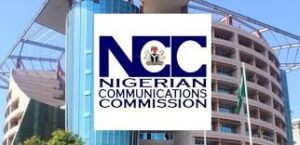As part of Nigeria’s efforts to increase its response to the Paris Agreement’s transparency requirements, key actors from a wide range of government ministries, departments, and agencies (MDAs); civil society representatives; as well as the media have been trained in data collecting, processing, and reporting.
The transparency provisions of Article 13 of the Paris Agreement on climate change require developing countries to regularly monitor, analyse, and report their national greenhouse gas (GHG) emissions and removals; provide information necessary to track progress towards achieving their Nationally Determined Contributions (NDCs); provide information related to climate change adaptation and mitigation; and provide information on financial, technology transfer, and capacity-building support needed.
This event, which took place on Thursday, January 16, 2025, in Abuja, under the Global Environment Facility’s Capacity Building Initiative for Transparency (GEF-CBIT) project, offered the participants the opportunity to learn about the various components, structure, and goals of the programme.
It also served as a platform to define the roles and responsibilities of each participating institution and outline approaches for strengthening capacity in GHG data management.
The exercise also facilitated discussions on timelines, expected outcomes, and coordination mechanisms among stakeholders while facilitating dialogues on baseline data collection, inter-agency collaboration, and technical considerations.
“Indeed, I am delighted that Nigeria has been driving an ambitious global agenda to address these crises,” Mahmud Adam Kambari, Permanent Secretary of the Federal Ministry of Environment, stated.
The PS, represented by Dr. Ama Moses, Director, Forestry and National Coordinator REDD+, asserts that, while the world is facing a global catastrophe of biodiversity loss, and pollution, the need to join forces in adapting to climate change impacts cannot be overemphasized.
He highlighted the numerous impacts of climate change experienced in the country, such as an increase in the frequency and severity of extreme weather events, the prolonged droughts, and its impacts on the country’s agricultural sector.
Kambari went on to list the nation’s continual massive deforestation, gaps in access to clean energy, the environmental effects of our fuel industry, and the encroachment of rising sea levels on our coastal regions as additional environmental challenges.
According to him, the success of this project requires a whole-of-government, whole-of-society approach, as well as good coordination and coherence among government’s MDAs, as well as representatives from civil society groups.
Despite the aforementioned setbacks, he was encouraged that Nigeria had taken steps to increase climate ambition by adopting policies and programmes to address these concerns, forming catalytic partnerships, and mobilising financing to reach its net-zero pledge by 2060 while maintaining economic development.
“I am glad to see many of those present here. It is your job to kick start this process here today. We need to ensure that we instrumentalise and accelerate action across sectors and society toward the reporting and realisation of the goals of the Paris Agreement,” Kambari told the attendees in preparation for the task ahead.
Dr. Joseph Onoja, Director General of the Nigerian Conservation Foundation (NCF), wants to see more stakeholders involved and raise awareness among those who will be working on how to address these issues, both in the public and private sectors.
This is significant, he believes, because “our lives depend on the environment. It is good for us to take care of it, so that it will in return take care of us.”
It would be ideal, he suggested, if Nigeria could get grants rather than loans to fund its climate initiatives. He stressed that high interest rates on loans hold developing countries behind and that it is difficult to use loans for development, noting that developing countries receive loans at higher interest rates than industrialised nations.
Another thing he mentioned that Nigeria requires is the capacity for accountability in handling these grants so that they are not issued and then nothing is observed on the ground.
That framework must be in place, he explained, which is why the workshop is so crucial in terms of transparency.
“So, if we are going to be transparent and accountable in all we do, including money management, we must do so,” Dr. Onoja said.




